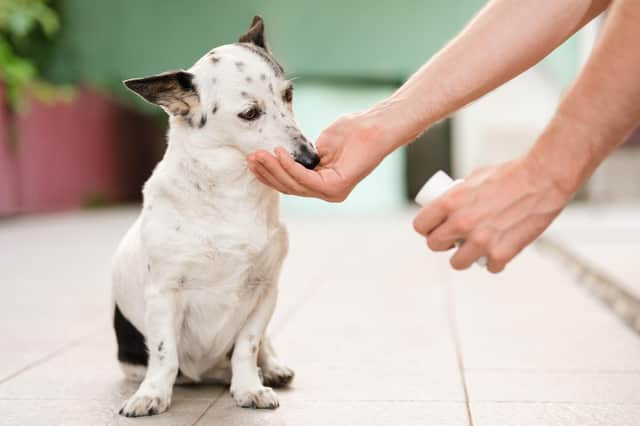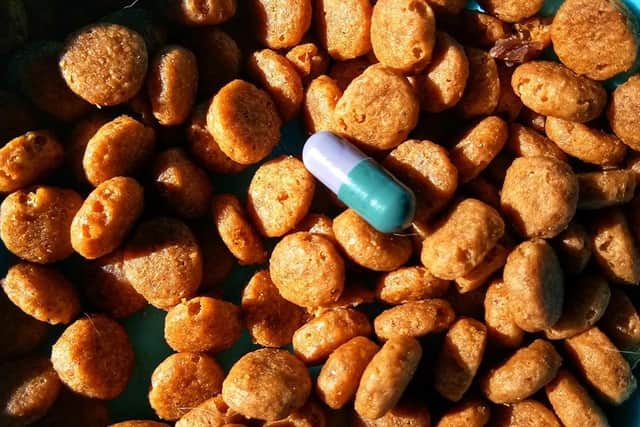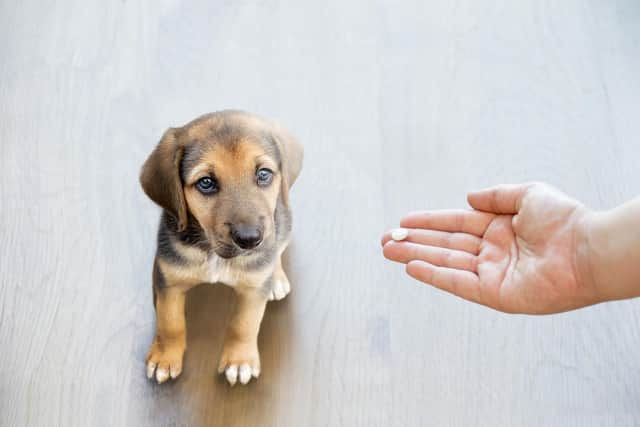PDSA advice on giving pets antibiotic medicine


Inappropriate use of antibiotics greatly increases the risk of resistance developing in bacteria which means some bacteria may have developed immunity against certain treatments. If these medicines stop working, fighting simple infections could become frighteningly difficult.
PDSA Vet Nurse, Nina Downing, said: “Antibiotics are a vital tool for overcoming many infections, but the misuse of them can lead to dangerous implications. When certain antibiotics stop treating relatively straight forward illnesses, alternative choices can be extremely limited. Luckily, as a pet owner there are simple steps you can take to help ensure they remain an effective method of treatment for yourself and your four-legged family members.
Advertisement
Hide AdAdvertisement
Hide Ad“Antibiotic resistance occurs when bacteria find ways to defeat the medicines they are frequently exposed to. This can lead to them evolving into dangerous superbugs, like MRSA, which are resistant to many antibiotics – making them difficult, or almost impossible, to treat.


“Healthy pets are often better equipped to fight off infections without medical treatment. Therefore, it helps to make sure your furry family member is eating an appropriate diet, getting enough exercise, and is up to date with all their vaccinations. The right amount of exercise can vary depending on your pet’s breed, age, and health, but walks and playing games are all great - getting them moving regularly is key!
“Antibiotics should only be used when needed but, remember, they don’t treat every disease – for example they can't kill viruses. Your vet will recommend the best treatment to help your pet feel better again - but this may not always involve antibiotics.
“Any medication can be harmful when not used appropriately. Drugs should only be administered to the pet they were prescribed for, and at the time they were intended – never from a previous course. Offering the wrong medication can make pets very poorly and lead to them needing further urgent medical treatment. Additionally, never give your pet medication unless it has been prescribed by your vet – it could be dangerous for your furry family member. Your vet will prescribe your pet the correct dosage for their weight, advise how often it should be given, and provide you with enough medication to last the full length of course that they will need. It is very important that you follow all instructions and don’t stop administering the medication before the course is complete, even if you think your pet seems better." photos: Adobe).
Questions answered by PDSA vet nurse Nina Downing:


Advertisement
Hide AdAdvertisement
Hide AdDear PDSA vet, I would like to let my budgie enjoy some free flying time inside the house. What can I do to make sure he’s safe? Arthur
Dear Arthur, allowing your budgie to fly freely around a room in your home is a great way for them to get more exercise and keep them happy. However, it’s important to make sure the room is secure. All windows and doors should be closed to prevent escape.
You’ll need to turn off any ceiling fans, extractor fans, and paper shredders. If you have blinds, make sure you close them properly so your bird cannot get tangled up in them, as this can be very dangerous. Closely watch your budgie to ensure he is not nibbling at any wires or toxic substances, like essential oil candles or paint, and remove any toxic indoor plants. To find out more about household hazards to watch out for visit https://www.pdsa.org.uk/keeping-your-pet-birds-safe site.
Dear PDSA Vet, while my cat and I were staying with family, I noticed they were using essential oils. I don’t think my cat got into them but what symptoms should I look out for? Megan
Advertisement
Hide AdAdvertisement
Hide AdDear Megan, essential oils can be harmful to our feline friends, even more so than when used undiluted. Symptoms of poisoning can include excessive dribbling, vomiting, shaking, or appearing unstable when walking. You may also notice your puss becoming lethargic, having difficulty breathing, or even collapsing. Check your cat’s skin. If they’ve been in direct contact with the oil it may be red and sore, which can be a sign of a chemical burn. If you suspect your pet has ingested, or been affected by, an essential oil, contact your vet who will be able to offer advice based on which oil they’ve been exposed to and the concentration.
Dear PDSA Vet, my dog Cherry is undergoing an operation soon. What can I do to help her recover comfortably? Jack
Dear Jack, like us, pets need plenty of TLC after surgery. Cherry will appreciate bland food following surgery and the day after. Visit https://www.pdsa.org.uk/post-surgery-care for more. Smaller meals of cooked chicken and rice, or scrambled egg can be gentle for her tummy. Provide somewhere quiet, warm, and safe to rest at home. She’ll need to take it easy following her operation. Restrict her walks, discourage her from being too playful, and take her out to the toilet on a lead. Setting a reminder can help you to stay on schedule with any medication she may need to take, too. It is very important Cherry doesn’t lick, bite or scratch at her stitches as this behaviour could cause Cherry’s wound to open or lead to a nasty infection. Recovery vest or cone collar can help prevent this.